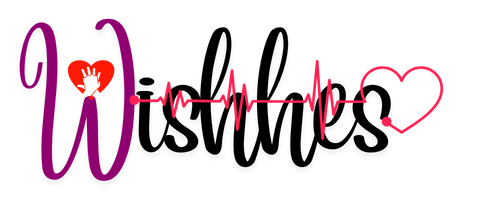Ever found yourself crying unexpectedly, caught off guard by a wave of emotion that you didn’t see coming? Maybe you were sitting at your desk, reading a book, or even just watching a commercial, and out of nowhere, tears started streaming down your face. It can feel like an emotional rollercoaster, and the intensity might leave you wondering, “Why did I cry without warning?” Well, you’re not alone, and there’s a good reason behind those sudden emotional tears.
Understanding Sudden Emotional Tears
Sudden emotional tears are exactly what they sound like – tears that appear out of nowhere, often without any obvious trigger. You may be having a perfectly normal day, when suddenly, you feel overwhelmed with emotion and can’t hold it back. It’s frustrating, confusing, and sometimes even a little embarrassing. But before you start questioning your emotional stability, it’s helpful to know that this phenomenon is more common than you might think.
Tears aren’t just a response to sadness or pain; they can be triggered by a range of emotions – everything from joy, frustration, and stress, to feelings of relief, nostalgia, or even exhaustion. Sudden emotional tears are your body’s way of releasing pent-up feelings. These tears often serve as a natural emotional reset, helping to release stress and bring you back to a calmer state.
Why Do You Cry Without Warning?
So, why do these emotional tears strike without warning? There are several possible reasons, ranging from psychological factors to physiological triggers. Let’s break it down:
1. Overwhelm or Emotional Buildup
Sometimes, you might cry without realizing how much emotional baggage you’ve been carrying. This can happen when you’re constantly dealing with stress, work pressure, or personal challenges. You may not feel like you’re particularly stressed at the moment, but all that accumulated emotional tension builds up over time. When a seemingly small or unrelated event happens, such as hearing a song, watching a touching scene in a movie, or having a simple conversation, your brain decides it’s time to release those pent-up feelings. This is a classic case of emotional overwhelm.
2. Hormonal Changes
Hormonal shifts can have a significant impact on our emotions. This is particularly true for women during times like menstruation, pregnancy, or menopause, when hormone levels fluctuate. Hormones like estrogen and progesterone can affect mood regulation, making you more susceptible to sudden emotional reactions, including crying.
For men, hormonal imbalances, such as those associated with stress or low testosterone, can also trigger emotional outbursts. So, if you notice crying fits during specific times, hormonal changes might be contributing to those sudden emotional tears.
3. Stress and Anxiety
We all experience stress, but when it’s prolonged or chronic, it can lead to anxiety. The body becomes tense, and emotional regulation becomes harder to maintain. Stress can be like a pressure cooker – it builds up, and at some point, the lid blows off. In this case, tears are the body’s way of releasing that internal pressure.
It’s also worth noting that anxiety can be triggered without a clear cause, making you more sensitive to stressors. This sensitivity can cause seemingly minor events to elicit an emotional response that leads to sudden crying.
4. Post-Traumatic Stress
If you’ve experienced trauma, whether recently or in the past, your emotional responses may be heightened. Triggers, such as certain sounds, smells, or even conversations, can bring up past memories and emotions. When this happens, the body’s fight-or-flight response can be triggered, leading to sudden tears. Post-traumatic stress disorder (PTSD) often manifests in emotional outbursts, which may seem unexpected or out of proportion to the situation at hand.
5. Empathy and Emotional Sensitivity
Some people are naturally more empathetic and sensitive to the emotions of others. If you are someone who is deeply affected by the suffering or happiness of those around you, you might cry during moments when others are going through something emotional. Whether it’s a friend sharing a personal story or seeing someone in distress, your deep sense of empathy can cause tears to flow unexpectedly.
6. Physical Fatigue
Sometimes, emotional tears aren’t triggered by any external emotional event but rather by physical exhaustion. When you’re extremely tired, your body is already in a vulnerable state, and it can be easier to get emotionally overwhelmed. Sleep deprivation or chronic fatigue can lower your emotional threshold, making it easier for you to cry without warning.
7. Nostalgia or Sentimental Moments
Nostalgia can bring tears to the surface too. Maybe a specific memory, like a song that reminds you of a lost loved one or a place from your past, catches you by surprise. Sentimental triggers like these can provoke tears that feel sudden but are actually tied to deep-seated emotions that may have been dormant for some time.
How to Cope with Sudden Emotional Tears
Crying without warning can feel out of control, but there are ways to cope with those sudden emotional outbursts and understand why they happen. Here are a few tips for dealing with unexpected tears:
1. Allow Yourself to Cry
It’s okay to cry. In fact, crying is a natural and healthy way to release emotions. It doesn’t make you weak or overly sensitive. Sometimes, the best thing you can do when you feel those tears coming is to let them flow. Allowing yourself to cry can be incredibly cathartic and emotionally cleansing. Don’t try to suppress it or hold it in – just let your emotions process naturally.
2. Practice Mindfulness
Mindfulness techniques can help you stay present and grounded during an emotional outburst. When you feel the tears coming, take a deep breath and observe your emotions without judgment. What triggered this reaction? Is there a deeper emotional layer you’re ignoring? Practicing mindfulness can help you regain control over your emotions and understand their root causes.
3. Talk It Out
Sometimes, talking to someone you trust can help you make sense of your emotions. Whether it’s a friend, family member, or therapist, sharing your feelings can offer relief. Sometimes the simple act of expressing your thoughts and concerns out loud can lessen the emotional weight and stop the tears from flowing.
4. Self-Care and Stress Management
Engaging in self-care and stress-reducing activities can help keep your emotions balanced. Regular exercise, meditation, and spending time doing things you enjoy can all help lower your emotional stress levels. The more you take care of your physical and mental well-being, the less likely you are to experience sudden emotional tears triggered by external stressors.
5. Know Your Triggers
If you experience sudden emotional tears regularly, try to identify patterns in your reactions. Are there certain situations or times of day when you’re more likely to cry? Understanding your emotional triggers can help you better prepare and manage your responses.
FAQs About Sudden Emotional Tears
- Is it normal to cry for no reason?
Yes, crying for no apparent reason is normal. Sometimes, emotions build up without a specific trigger, and crying is a way for your body to release that tension.
- How do I stop myself from crying in public?
If you feel tears coming in public, try to take deep, slow breaths to calm your emotions. Focus on grounding techniques, like pressing your feet into the floor or holding onto an object. Sometimes, taking a moment to excuse yourself and find a private space can help.
- Can hormonal imbalances cause sudden crying?
Yes, hormonal imbalances can make you more sensitive to emotions, leading to sudden tears. This is especially common in women during menstruation, pregnancy, or menopause.
- How can I manage emotional tears without feeling overwhelmed?
Managing emotional tears involves practicing self-care, identifying emotional triggers, and talking to someone you trust. Deep breathing exercises and mindfulness can also help you regain control of your emotions.
Conclusion
Sudden emotional tears can catch you off guard, but they are a natural part of the human experience. Whether triggered by stress, hormones, fatigue, or nostalgia, these tears are your body’s way of releasing built-up emotions. Instead of resisting them, embrace the moment and allow yourself to feel. By understanding the reasons behind your emotional outbursts and practicing coping strategies, you can navigate through these unexpected tears with more self-awareness and grace. So next time those tears come out of nowhere, remember – it’s okay to cry.




